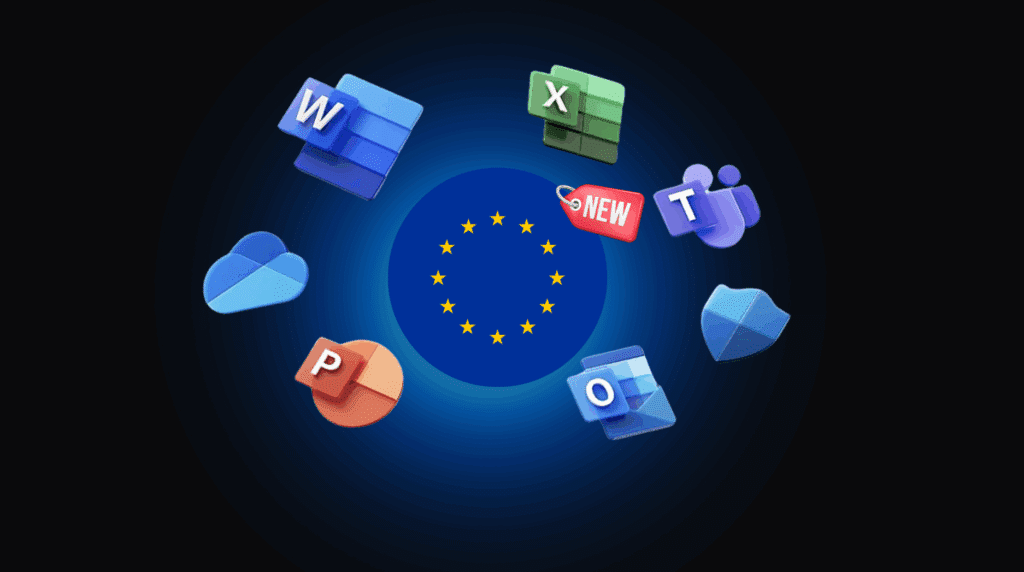Microsoft’s New European Cloud Commitments: A Turning Point for Licensing and Digital Sovereignty

On April 30, 2025, Microsoft announced a set of updated commitments designed to address European concerns around digital sovereignty, fair competition, and cloud market dynamics. Titled the “European Cloud Principles” and framed within a broader “European Cloud Customer Commitment,” the move responds to growing regulatory scrutiny across the EU and attempts to align more closely with the region’s evolving digital policy framework.
This announcement comes amid formal investigations by the European Commission into Microsoft’s bundling and licensing practices, as well as increased pressure from local cloud providers and EU institutions to support a more open and competitive digital ecosystem.
What Microsoft Announced
The company introduced five principles under its new initiative, with a particular focus on:
- Data sovereignty: Ensuring that customers in the EU can store and process their data within the region’s borders.
- Cloud choice and portability: Improving the ability of customers to switch cloud providers or repatriate workloads.
- Fair software licensing: Allowing competing cloud providers in the EU to access Microsoft software under more equitable conditions.
- Support for open standards and interoperability: Reducing lock-in through broader technical compatibility.
- Compliance and transparency: Aligning with EU data protection and cybersecurity requirements.
These principles are meant to support the goals of the EU Data Act, Digital Markets Act (DMA), and broader policy efforts to assert European digital autonomy.
Key Implications for Software Licensing
The announcement could have meaningful consequences for how organizations manage Microsoft software licenses, especially in cloud-heavy, hybrid, or multi-vendor environments. Several points stand out:
1. Portability and Exit Support
Microsoft’s pledge to ease customer transitions between platforms addresses a long-standing concern around vendor lock-in. Licensing conditions that previously made it costly or complex to exit Microsoft Azure or reassign Microsoft software to alternative infrastructures may be revised to provide more flexibility.
2. Non-Discriminatory Licensing
A significant part of the criticism levied against Microsoft in Europe has been related to licensing rules that disadvantaged local infrastructure providers. The new commitments suggest that Microsoft will allow EU-based cloud services to license Microsoft software on more equal terms, potentially reducing competitive barriers for providers like OVHcloud, Deutsche Telekom, and Orange.
3. Alignment with EU Regulatory Frameworks
This move appears to anticipate stricter enforcement of the DMA, which designates Microsoft as a “gatekeeper” and subjects it to rules aimed at preventing market abuse. Adjusting licensing practices now could help the company stay ahead of potential penalties or structural remedies.
4. Operational Transparency and Compliance
The commitments also highlight improved transparency around cloud usage, billing, and security standards, key areas for enterprise IT and procurement teams seeking clearer, audit-ready software environments.
Industry and Regulatory Reactions
While Microsoft positions this as a proactive step toward alignment with EU values, not all stakeholders are convinced. Critics argue that similar commitments made in the past lacked sufficient enforcement mechanisms or failed to translate into meaningful contract-level change.
The European Commission has stated that it will continue its investigation into Microsoft’s practices despite this announcement. Local cloud providers and trade groups are likely to scrutinize how these principles are implemented in practice—particularly in enterprise contracts, CSP agreements, and partner licensing conditions.
Microsoft’s European cloud commitments represent a notable shift in how one of the world’s largest software vendors engages with regional regulatory trends. If followed through with concrete contractual updates and enforcement transparency, the move could:
- Improve competition across the European cloud market
- Increase leverage for enterprise IT buyers in license negotiations
- Set a precedent for other hyperscalers navigating Europe’s digital sovereignty agenda
However, much will depend on the practical application of these commitments, whether in renegotiated agreements, CSP frameworks, or future audits. For now, organizations operating in Europe should closely monitor how Microsoft’s licensing models evolve and how EU regulatory bodies respond.










